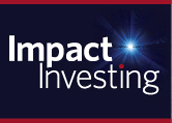Describing the essence of Slow Money is easy. Trying to figure out where it fits into the scheme of things from an investment perspective isn’t so easy.
The Slow Money Alliance is a Boulder, Colo.-based national network of individuals who literally invest from the ground up when it comes to the soil and local economies. This entails making low-interest loans to local small farmers, food shops, distributors or other small players involved in the food production and consumption chain. The folks at Slow Money give this several names––“farmer capital,” “natural capital,” “nurture capital,” “social capital,” “local capital” … even “cheese capital.”
The basic point, according to the Slow Money manifesto, is that money is too fast, companies are too big and finance is too complex. Slow Money participants subscribe to the notion that the soil teaches us we must put back as much as we take out to ensure long-term health and a strong, restorative economy. Another notion is that investing in food, farms and fertility connects investors to the places where they live while creating vital relationships and new sources of capital for small food enterprises.
I know, some of you are probably rolling your eyes and thinking Slow Money people are either a bunch of granola-fueled tree huggers or are super wealthy-types who can afford to funnel some of their money into an idealistic scheme.
Indeed, Slow Money isn’t for everyone, nor do its leaders expect it to be. But it does have intrinsic appeal to people attracted to impact investing, a broad and growing subset of investors putting money into organizations and companies addressing climate change, supporting organic farms, improving health care in poor nations and reducing foreclosures in inner-city neighborhoods, among myriad other objectives.
Carrie VanWinkle, a financial advisor with the registered investment advisor Natural Investments LLC in Louisville, Ky., is one of those people. An urban beekeeper with a background in community-based nonprofit work, VanWinkle’s advisory practice is based on socially responsible investing principles.
She helped found Slow Money Kentucky last year to invest in small food operations in Kentucky and neighboring Indiana. The group now has more than 80 members, and it aims to meet thrice yearly to connect potential investors and borrowers. “They find each other and develop the relationship from there,” VanWinkle says. “Our basic method is peer-to-peer lending.”
As of August, most of the group’s loans have gone to two farmers––one who wanted to lease land to expand his operations and another who wanted to build a greenhouse to extend his growing season and keep his workers employed through the winter. VanWinkle says both loans were less than $10,000, and neither farmer considered getting the money from a bank. Either they wouldn’t qualify or they simply didn’t want to enter into that type of arrangement.
Slow Money Kentucky’s loans charge no more than 5% interest, and VanWinkle says they tend to be 3% to 5%. Loan lengths are decided by the lender and lendee.
“I think people sometimes come into Slow Money––or local investing more broadly––with the right intentions, but they get caught up in financial return rather than the whole return, which is financial-plus,” she says. The 3% to 5% loan rate “seems to be a pretty fair rate of return in today’s environment.”

